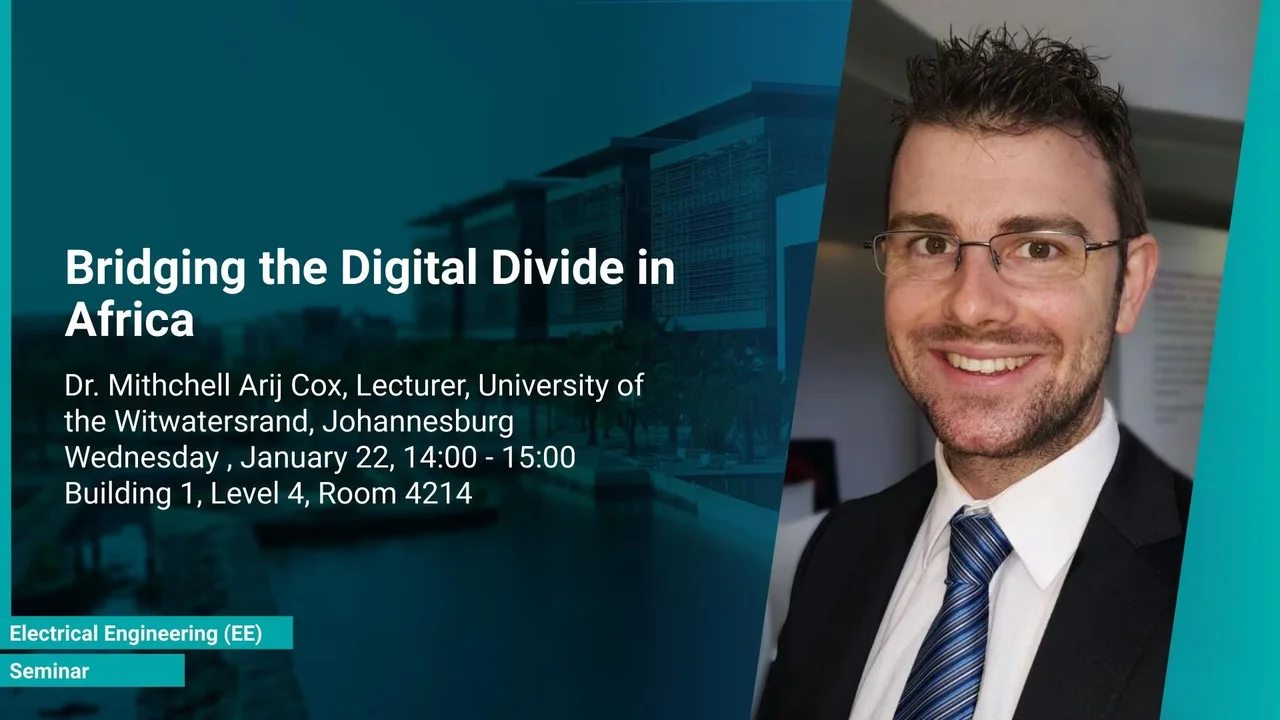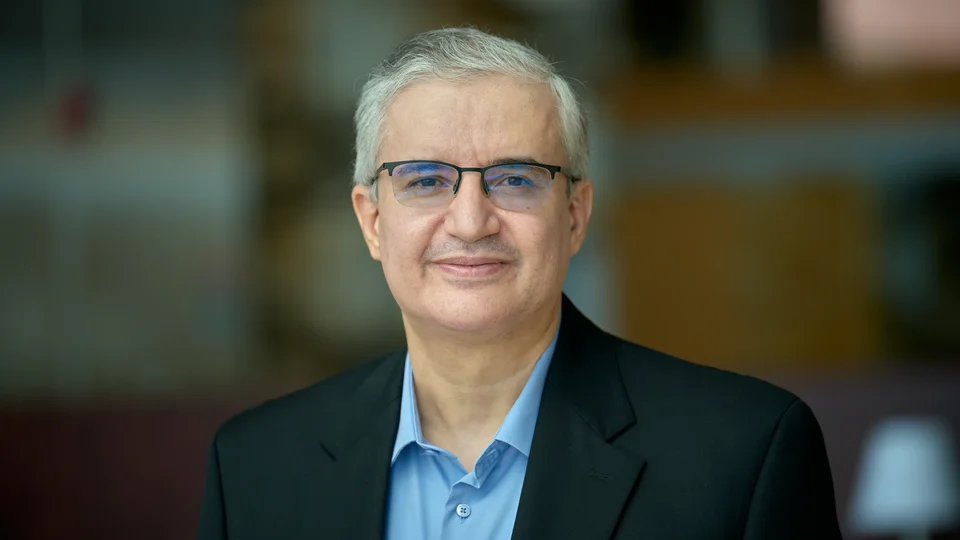
Bridging the Digital Divide in Africa
- Dr. Mitchell Arij Cox, Lecturer, University of the Witwatersrand, Johannesburg
B1 L4 R4214
Africa has one of the highest inequality factors in the world, reflecting its developed and developing nature. As such it suffers from the traditional “digital divide”, with low internet connectivity reach in rural areas, which is both economic and geographic in nature. In this talk we will summarize recent proposals to bridge the digital divide and offer a South African perspective on the problem. We will cover active research in South Africa on the topic and speculate what the network future in Africa might be.
Overview
Abstract
Africa has one of the highest inequality factors in the world, reflecting its developed and developing nature. As such it suffers from the traditional “digital divide”, with low internet connectivity reach in rural areas, which is both economic and geographic in nature. In this talk we will summarize recent proposals to bridge the digital divide and offer a South African perspective on the problem. We will cover active research in South Africa on the topic and speculate what the network future in Africa might be.
Brief Biography
Dr Mitchell Cox is interested in Free-Space Optical (FSO) communications research and is currently a lecturer in the School of Electrical and Information Engineering at The University of the Witwatersrand (or simply, Wits University) in Johannesburg, South Africa. As a part physicist, part electrical engineer, Mitchell is currently working on finding ways to use structured modes of light as well as tailored signal processing and coding techniques to improve the range of FSO links, while maintaining high capacity. In his PhD which he completed in 2019, Mitchell showed that vector vortex modes are not more resilient to atmospheric turbulence than their scalar counterparts, proposed the use of optical modes for "Modal Diversity" and showed that higher order modes (Hermite- and Laguerre-Gauss) unexpectedly respond to atmospheric turbulence in a basis-dependent manner. He hopes that these results will contribute to progress in FSO technology, and ultimately help connect the world.
